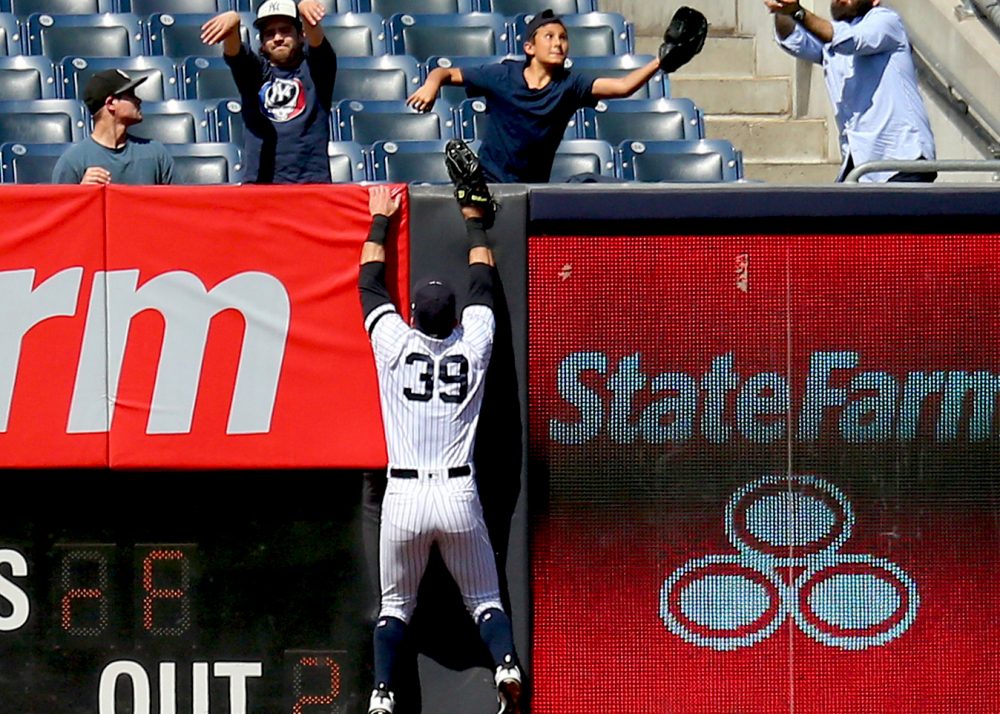
Take it away, Bill James:
The logic behind this, explained in James’s iconic Abstracts, is pretty straightforward: While it’s hard to hit home runs against the great pitchers that are featured in the postseason, it’s even harder to string together three singles, or a walk and a double, or whatever succession of baserunners is needed to put runs on the board.
Of course, the last Abstract was written in 1987. Has this dynamic changed?
First, we need to define the reliant on home runs. James is right about those old Yankees teams. Babe Ruth hit more homers in 1927 (60) than the Pirates team the Yankees swept in the World Series (54). But hitting a bunch of home runs doesn’t imply that’s the only way a team scores. This year, for example, the Yankees lead the American League in home runs. But they’re also fourth in singles, seventh in doubles, and fifth in walks. Last year the Red Sox were sixth, third, first, and second in those categories. Teams that hit a lot of homers tend to do a lot of other things well, too. You’re not overly reliant on homers when you’ve got guys on base all game long.
Here at Baseball Prospectus, we have a stat for that. BP alumni Joe Sheehan came up with the Guillen Number. It calculates the percentage of team’s runs that are scored via home runs. That’s a better measure of reliance than the raw home run total. This year, the Guillen Number, through Sunday’s games, range from 34.5 for the Marlins to 53.0 for the Blue Jays. We can use the Guillen Number to test whether a reliance on home runs is good, bad, or indifferent in the postseason.
I compared the Guillen Number for the teams in every postseason series (I ignored Wild Card games) since 1950, the first year for which we have the data, expanding a bit in breadth and method on Ben Lindbergh’s look at this subject from 2012. I divided my analysis into four timeframes:
- 1950-1968: AL and NL champions play in the World Series, no other series
- 1969-1983: Best-of-five League Championship Series preceding the World Series
- 1984-1993: Best-of-seven League Championship Series preceding the World Series
- 1995-2018: Best-of-five Division Series preceding the Championship and World Series
Here are the records of the teams with the higher Guillen Number—the team more reliant on home runs for run production—in each series during each era.
| World Series | Championship | Division | |||||||
| Years | W | L | Pct. | W | L | Pct. | W | L | Pct. |
| 1950-1968 | 8 | 11 | .421 | ||||||
| 1969-1983 | 5 | 10 | .333 | 21 | 9 | .700 | |||
| 1984-1993 | 6 | 4 | .600 | 10 | 10 | .500 | |||
| 1995-2018 | 10 | 14 | .417 | 24 | 24 | .500 | 49 | 47 | .510 |
| Total | 29 | 39 | .426 | 55 | 43 | .561 | 49 | 47 | .510 |
| All Series | 133 | 129 | .508 | ||||||
There are several ways you could look at these results. You could say that being home run dependent is a hinderance in the World Series. You could say it’s a boon during the Championship Series. You could say that homer-reliant teams have a slight edge in the Division Series. Or that they have a slight edge overall in the postseason.
But all of these would be wrong. Here’s the only thing you can definitely say: The data are inconclusive. Given the close numbers and relatively small sample sizes, it’s basically a coin flip. There isn’t evidence that being homer-reliant helps in the postseason. Nor is there evidence that it hurts.
This isn’t to say that James is wrong. He said, “The notion that any team is too reliant on home runs to do well in the post-season is directly contradicted by all of baseball history.” I didn’t look at all of baseball history; I looked only at 1950-2018. And these data do contradict the idea of a team being “too reliant” on home runs being hamstrung. He also said, “Home Run based offenses have, on the whole, done super-well in the post season.” Again, I didn’t look at all of history, and I’d argue that home run based offenses—ones that hit a lot of homers—aren’t the same as home run reliant offenses—ones that score most of their runs via the longball. The Yankees have hit more home runs than any team, but they’ve got only the sixth highest Guillen Number.
Here’s what we can say, definitively. If someone says a team in this year’s postseason—say, the Twins—is highly reliant on home runs (52.0 Guillen Number), and therefore ill-suited for success, they’re wrong. Similarly, if someone says the Twins’ homer-reliant offense positions them well for the postseason, they’re also wrong. The data just don’t support it.
It isn’t easy to handicap the postseason. Just about everything everybody identifies as a key—a strong rotation, a deep bullpen, a good record against winning teams, or, as shown here, an offense that’s notably reliant or not on dingers—turns out to not be predictive. Enjoy the postseason, but don’t bet on baseball.
Thank you for reading
This is a free article. If you enjoyed it, consider subscribing to Baseball Prospectus. Subscriptions support ongoing public baseball research and analysis in an increasingly proprietary environment.
Subscribe now